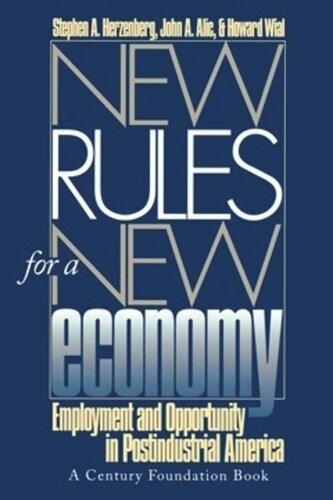

Most ebook files are in PDF format, so you can easily read them using various software such as Foxit Reader or directly on the Google Chrome browser.
Some ebook files are released by publishers in other formats such as .awz, .mobi, .epub, .fb2, etc. You may need to install specific software to read these formats on mobile/PC, such as Calibre.
Please read the tutorial at this link: https://ebookbell.com/faq
We offer FREE conversion to the popular formats you request; however, this may take some time. Therefore, right after payment, please email us, and we will try to provide the service as quickly as possible.
For some exceptional file formats or broken links (if any), please refrain from opening any disputes. Instead, email us first, and we will try to assist within a maximum of 6 hours.
EbookBell Team

5.0
28 reviewsThree quarters of the American workforce is now employed in services, a substantial portion in low-paying, dead-end jobs. Can the service economy do as well by the American worker as the old manufacturing economy? Can the widely shared prosperity that accompanied steady increases in productivity and performance in manufacturing be replicated in the services? They can and they will, the authors of this timely book contend, but only if outmoded policies and practices are brought into line with the new economy. New Rules for a New Economy explains why this must be accomplished and how we can start.The authors call for new, decentralized institutions suited to a dynamic economy in which change is constant and rapid. In particular, they see a need for job ladders and worker associations that cut across firm boundaries. These institutions would foster individual and collective learning, mark out career paths, and facilitate coordination among both individuals and organizations in a networked economy. The authors propose new rules to reshape labor market institutions and policy, improving economic performance and opportunities for workers. Unusual in providing a comprehensive theoretical perspective that is grounded in detailed case research, this book points the way to a better future, not just for elite knowledge workers but for everyone.